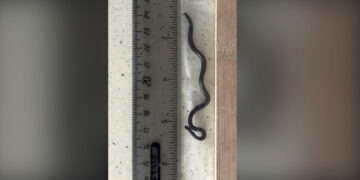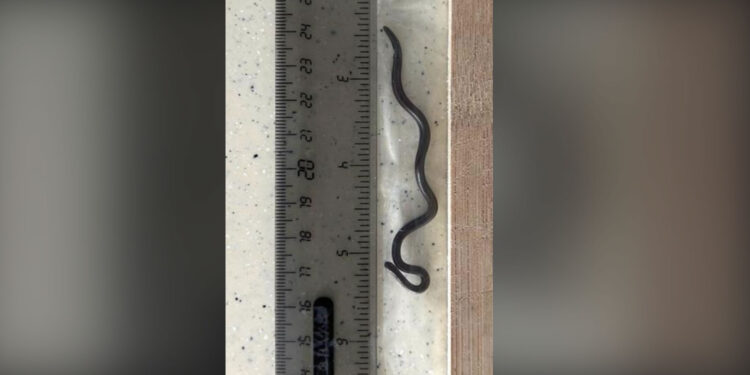Under a rock in a dwindling patch of Barbadian forest, conservationists have found what many feared was lost forever – the Barbados threadsnake, a creature so small it could curl up on a dime. The rediscovery ends nearly two decades of scientific uncertainty about the survival of the planet’s tiniest serpent.
Connor Blades, a researcher with Barbados’ Environment Ministry, still remembers the moment last March when his year-long search finally paid off. “You start doubting yourself after months of empty surveys,” he admitted, recalling how the thread-thin reptile writhed uncontrollably in his petri dish. Only under microscope magnification could he confirm the telltale pale stripes and side-positioned eyes distinguishing it from similar species.
The breakthrough came during a routine survey of endangered jack-in-the-box trees in central Barbados. Blades and Rewild’s Justin Springer were documenting the rare flora when their team decided to inspect nearby rocks, a split-second decision that rewrote conservation history. “That’s the magic of fieldwork,” Springer noted. “Ecosystem connections reveal themselves when you least expect.”
Measuring just 10 centimeters fully grown, the blind, burrowing snake was first identified in 2008 by Temple University biologist S. Blair Hedges, who named it Tetracheilostoma carlae after his wife. His original discovery involved genetic testing to distinguish it from museum specimens mislabeled for over a century. “People kept sending me photos of earthworms for years afterward,” Hedges chuckled, recalling the confusion surrounding the diminutive species.
The threadsnake’s survival offers hope for Barbados’ embattled ecosystems. The island has lost 95% of its original forest, worse than deforestation-ravaged Haiti, along with endemic species like the Barbados racer snake. Conservationists now aim to leverage the rediscovery to protect remaining habitats. “This isn’t just about one snake,” Springer emphasized. “It’s proof that even our smallest wild neighbors play irreplaceable roles.”



































